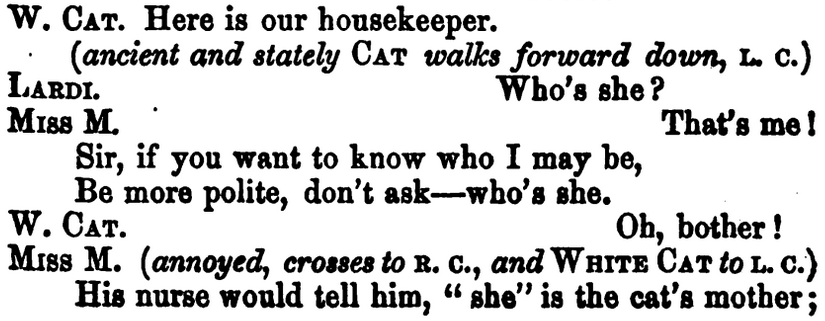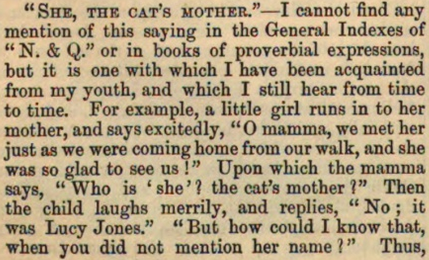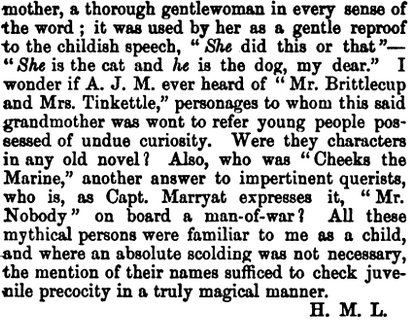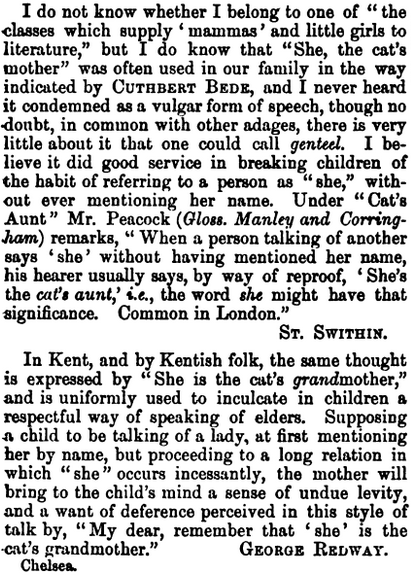I'm wondering where the phrase originates.
Who's 'she', the cat's mother?
(idiomatic, somewhat dated, Britain, New England)
A rebuke especially directed towards children for having referred to a woman as "she", instead of using her name or an appropriately respectful title."She's coming on the trip with us too!"
"Who's 'she', the cat's mother?"
"Sorry, gran is coming with us too."
— wiktionary
From grammarphobia.com, etc., can see it goes back to at least 1897 but I'm having problems finding the origin.
I see various discussions on Yahoo, Word Origins but so far nothing authorative.
Here are the OED’s citations for such reprimands, which date from the late 19th century:
“Don’t call your mamma ‘she.’ ‘She’ is a cat” (from The Beth Book, by Frances Macfall, writing as Sarah Grand, 1897).
“ ‘Who’s She?’ demanded Nurse. ‘She’s the cat’s mother’ ” (from Compton Mackenzie’s novel Sinister Street, 1913).
— grammarphobia.com
EDIT.
One 100% unsubstantiated theory I read was she was short for she-cat, so particularly unsuitable for referring to female elders within earshot, but who knows if this has any truth!
And where did the cat come from? Well, a male cat is a tom; a female cat is a she, or more often, a she-cat. So, 'she' is for cats. (And Not Your Mother!)
— everything2.com










